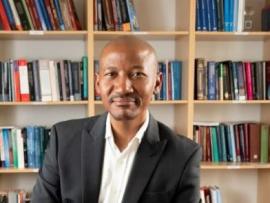
THE HAGUE/PRETORIA, Feb 7 (NNN-SANEWS) — Professor Dire Tladi has been sworn in as the first-ever South African judge of the International Court of Justice (ICJ).
The ICJ held a public sitting on Tuesday morning, where Tladi and three other Excellencies were officially sworn in after being elected by the United Nations General Assembly and Security Council on Nov 9. 2023.
The other new members of the court include Bogdan-Lucian Aurescu from Romania, Sarah Hull Cleveland from the United States and Juan Manuel Gómez Robledo Verduzco from Mexico
During the sitting, the four judges each solemnly declared Article 20 of the Statute of the Court.
The declaration, according to the ICJ, stipulates that members shall, before taking up their duties, make a solemn declaration in open court that they will exercise their powers impartially and conscientiously.
The new members’ nine-year terms of office will begin on the same day.
Last year, President Cyril Ramaphosa described Tladi’s election as an outstanding personal achievement that the nation shares with great pride.
“We appreciate the confidence expressed by the United Nations in Prof Tladi’s capabilities. He becomes the newest member of a fraternity of South Africans globally who are in positions of service to the international community and making important contributions to the better world we seek to build.
“We wish Prof Tladi well as he prepares to contribute to the Court and its jurisprudence from the Palace of Peace in The Hague, Netherlands,” the President said then.
The ICJ is the principal judicial organ of the UN and one of the six principal bodies of the intergovernmental organisation.
The court’s role is to settle, per international law, legal disputes submitted to it by states and to give advisory opinions on legal questions referred to it by authorised UN organs and specialised agencies.
South Africans have become familiar with the top UN court after the country approached it to garner not only a ceasefire of Israel’s military barrage of Palestine but also to ask the court to find the Israeli government guilty of committing acts of genocide.
The ICJ found that it was “plausible” that Israel committed acts which violated the Genocide Convention.
The court in The Hague ordered Israel to, amongst others, take all measures within its power “to prevent and punish the direct and public incitement to commit genocide” and to immediately ensure that Palestinians have access to basic services and humanitarian assistance.
The Professor is a leading international law scholar whose accomplishments span different areas of the field, including academic, government service, diplomatic and practice.
On his appointment as a judge of the ICJ, he was the University of Pretoria professor of international law and Future Africa’s Research Chair in Global Equity in Africa.
Speaking to the university last year, he said he was experiencing a mix of different emotions.
“I am filled with mixed emotions – excitement, elation and a touch of nervousness. I’m overwhelmed with gratitude because so many people played a role in this journey.
“The entire experience has been humbling, especially navigating through the challenges of an intense campaign, and juggling various responsibilities over the past few months. The announcement and the tense process have undoubtedly taken a toll, but I’m absolutely ecstatic and profoundly humbled by the experience,” the Professor added. — NNN-SANEWS





